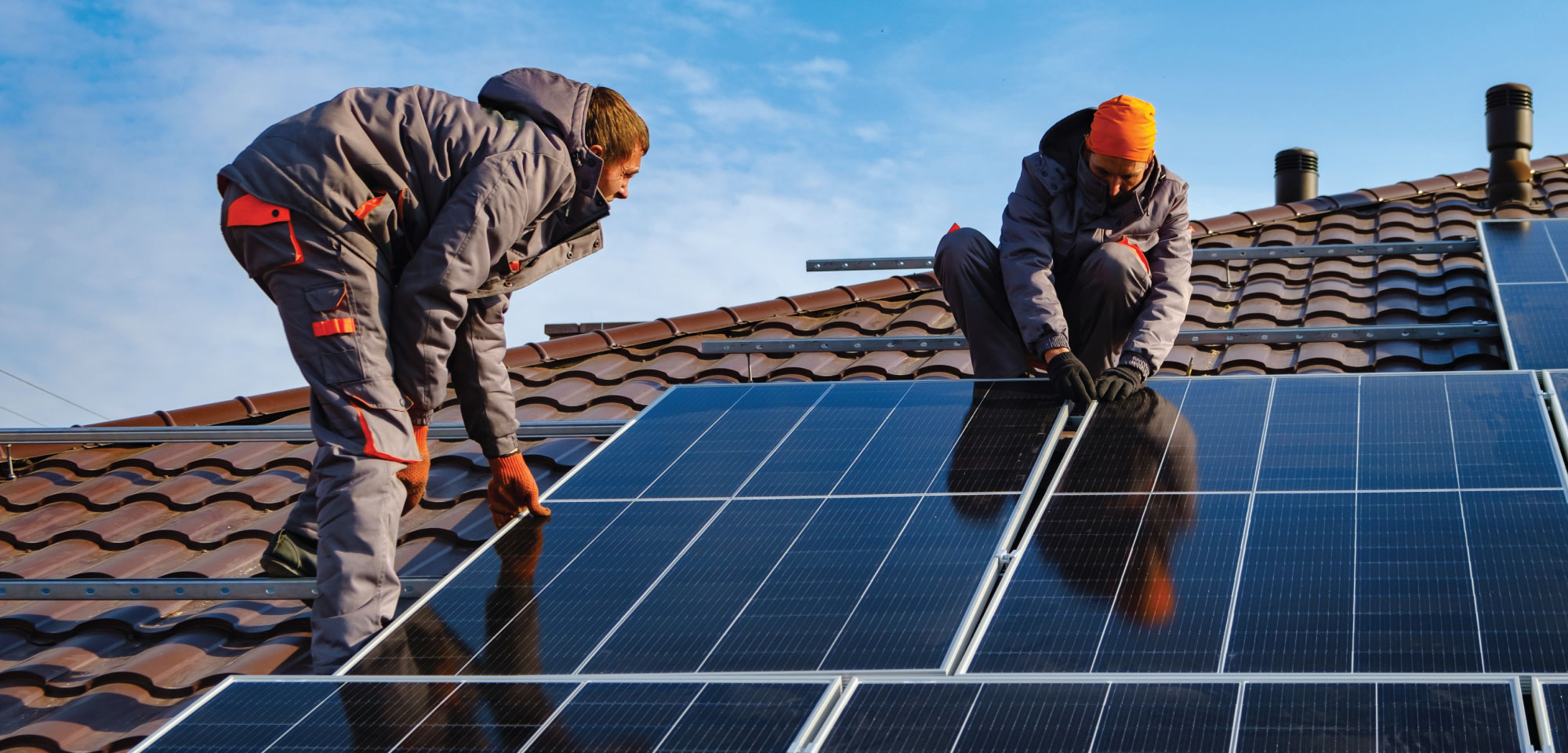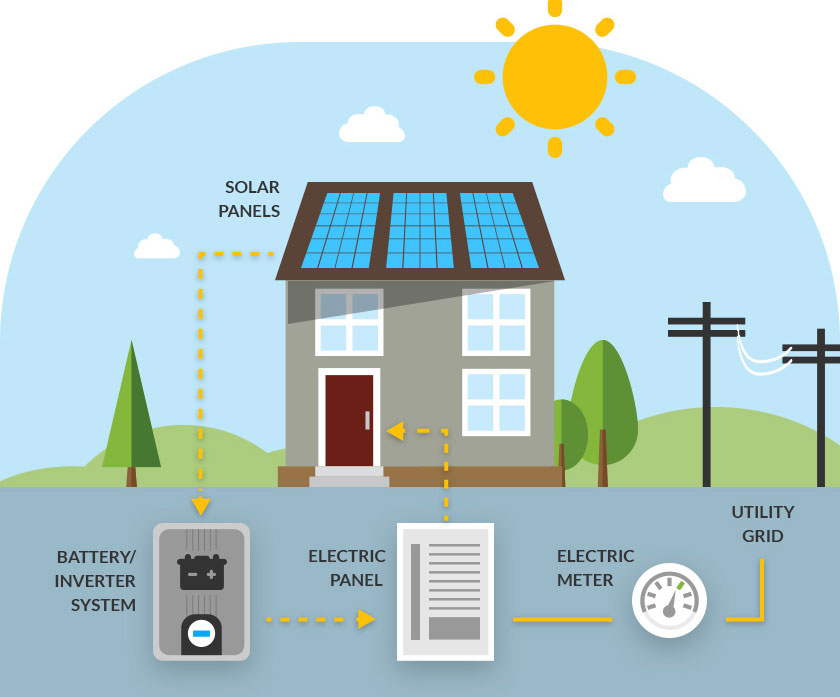The Commercial Solar Panels Virginia PDFs
The Commercial Solar Panels Virginia PDFs
Blog Article
Virginia Solar Panel Incentives: Lumina Solar Concentrates On Providing Advanced Photovoltaic Solutions For Houses And Services
History and Establishing
Have you ever questioned how a solar panel company springs from a mere spark of motivation into a powerhouse of renewable resource? It frequently begins with a vision-- one sustained by a mix of development, decision, and a pinch of serendipity. The journey of many solar business mirrors the evolution of the technology itself: from bulky, inefficient panels to streamlined, high-efficiency marvels utilizing the sun's bounty.
The Early Days
In the late 20th century, when solar energy was still a niche concept, leaders planted seeds for what would become an international motion. Picture a little workshop filled with curious engineers, tirelessly experimenting with solar batteries. Their passion was palpable, frequently driven by a desire to fight environment change and minimize reliance on nonrenewable fuel sources.
One such anecdote is about a founder who, influenced by a camping journey, understood that even in remote locations, the sun could power important gadgets. This simple observation stimulated a business's mission to democratize access to clean energy.
Establishing Principles

- Innovation: Constantly pushing the limits of solar technology to improve performance and resilience.
- Sustainability: Committing to environmentally friendly manufacturing and lowering carbon footprints.
- Availability: Making renewable resource solutions economical and useful for daily users.
Milestones in Growth
| Year | Secret Event |
|---|---|
| 1985 | Business founded in a little garage, concentrating on research study and advancement. |
| 1995 | Commercial solar panel product introduced, getting local attention. |
| 2005 | Broadened to international markets, welcoming worldwide renewable resource objectives. |
| 2015 | Presented innovative solar panel innovation with improved energy conversion. |
Isn't it fascinating how these incremental steps, frequently neglected, form the energy landscape today? The photovoltaic panel company story is not simply about innovation; it's about an unrelenting quest for a brighter, cleaner future.

Innovations in Solar Panel Technologies
Ever discovered how some photovoltaic panels gleam brighter and last longer? It's not magic; it's the science of photovoltaic performance. Modern photovoltaic panel companies invest greatly in innovations like bifacial cells, which capture sunshine from both sides, improving energy harvest without expanding roofing space. Have you ever wondered why some panels carry out better on cloudy days? That is because of advances in thin-film solar innovation, which flourishes under diffused light conditions.
Product Variations Tailored to Special Requirements
One size never fits all. Solar panel companies now provide:
- Monocrystalline panels for optimum performance and smooth aesthetic appeals, perfect for space-constrained rooftops.
- Polycrystalline panels, which offer a cost-efficient alternative without sacrificing excessive output.
- Building-integrated photovoltaics (BIPV), merging solar tech perfectly into architectural aspects like windows and facades.
Picking the right product isn't just about upfront cost; it's about matching your environment, energy objectives, and long-lasting cost savings. Homes shaded by trees require panels that stand out in low-light situations, something numerous overlook until energy bills climb all of a sudden.
Technical Tips for Optimal Selection
- Evaluate the temperature coefficient-- lower worths imply panels lose less efficiency on hot days.
- Try to find panels with boosted anti-reflective finishings to maximize light absorption.
- Consider the panel's warranty not simply for defects, but for ensured power output over decades.
- Do not undervalue the value of the inverter technology paired with the panels; it can make or break your system's performance.
Beyond Panels: Emerging Patterns
Picture photovoltaic panels that change their angle automatically to chase the sun-- tracking systems are ending up being more accessible, increasing yield considerably. Or solar tiles that mix undetectably into your roofline, changing your home into a silent, self-sufficient power generator. These innovations are improving what a solar panel business offers-- not just products, but integrated energy services.
Market Presence and Global Operations
Ever question why some photovoltaic panel companies seem to grow up in every corner of the globe while others barely make a ripple? The difference lies not simply in innovation but in mastering the art of browsing diverse markets. Expanding worldwide resembles planting seeds in different environments-- you should comprehend each environment's special conditions to thrive.
Take, for circumstances, the intricate dance of logistics and supply chain management. Delivering panels halfway across the world isn't almost distance; it has to do with timing, customs, tariffs, and adapting to local demand variations. A company with robust global operations anticipates these variables, guaranteeing panels show up on schedule without inflating expenses. This foresight is no little feat and frequently separates market leaders from followers.
Secret Strategies for Expanding Market Presence
- Localized manufacturing: Establishing production hubs near target audience decreases shipping hold-ups and import intricacies.
- Strategic partnerships: Working together with local companies speeds up market penetration and develops trust.
- Adaptive item style: Customizing solar panel tech to weather, sun intensity, and infrastructure subtleties boosts efficiency and approval.
What about the human element? Solar panel companies operating worldwide should fix up cultural differences and regulatory nuances without losing sight of their core mission. What works in a sun-drenched desert may fail in a humid seaside region. Often, the most ingenious option is merely listening-- soaking up regional insights to fine-tune innovation and technique.
Experts often encourage a phased rollout instead of a shotgun growth. Why run the risk of overextension when measured development constructs sustainable momentum? Scaling carefully means balancing aspiration with operational resilience - Solar Panel Installation Virginia. After all, in the race for sustainable energy dominance, patience can be as valuable as speed
Environmental Effect and Sustainability Practices
When solar panels first emerged, many presumed they carried zero ecological baggage. However, the truth is more nuanced. The production of photovoltaic cells includes rare earth metals and energy-intensive processes, which can leave a substantial carbon footprint before the panels even reach roofs. Yet, the real environmental expense depends greatly on the sustainability practices utilized by the solar panel company throughout the lifecycle of their products.
How frequently do we stop briefly to consider what occurs to solar panels at the end of their useful life? Unlike batteries or electronic devices, photovoltaic panels can last 25-30 years, but disposal and recycling pathways stay underdeveloped in many areas. A company committed to decreasing environmental damage will have a robust strategy for recycling photovoltaic products, salvaging important silicon, glass, and metals to avoid garbage dump build-up.
Secret Sustainability Strategies
- Using low-impact manufacturing methods that reduce water and energy usage.
- Carrying out closed-loop systems to recycle production waste back into new panels.
- Taking part in transparent supply chain audits to ensure ethical sourcing of basic materials.
- Designing panels for easier disassembly to aid future recycling efforts.
It's worth noting that some solar companies have actually pioneered innovative approaches, such as incorporating eco-friendly components or utilizing less hazardous chemicals during fabrication. This not only decreases environmental strain however likewise sets a precedent for the industry. The concern remains: can the solar market really pivot towards a circular economy design without compromising effectiveness or price?
Specialist Tips for Examining Sustainability
- Ask about the business's commitment to carbon-neutral production and whether they balance out emissions.
- Investigate if they partner with accredited recycling centers dedicated to photovoltaic panel waste.
- Try to find openness reports detailing ecological impacts and sustainability goals.
- Consider the durability and guarantee of panels as an indirect procedure of resource performance.
In the end, selecting solar energy needs to suggest more than just slashing electricity costs; it's about check here supporting a future where energy is collected properly and waste is thoughtfully managed. Photovoltaic panel business that welcome this philosophy not just light up homes but also cast a brighter light on sustainable development.
Report this page